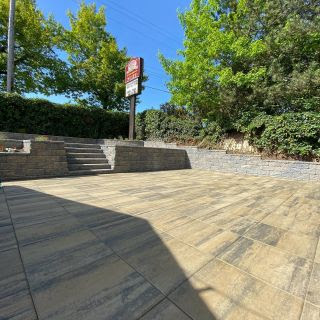Objectives of Retaining Walls on Commercial Properties!

A retaining wall is one that holds back the soil. To be sure, it is a clear idea, but don't be misled by it. Retaining walls are actually quite complex technical structures. Since ancient times, they have been utilized to enhance the practicality, efficiency, and beauty of all kinds of property. One or more Langley retaining walls are generally beneficial for commercial sites. Let's look at some of the main elements of why retaining walls are used on commercial properties and how this commercial landscaping project may raise the value of your property. Purposes Served by Retaining Walls Retaining walls can transform into a beautiful visual element of your commercial property with a suitable material selection. Your property will be noticeable as something exceptional if you add landscape lights, suitable plantings, and possibly one or more sets of steps. To define the space, retaining walls are occasionally erected along roadways and hallways. They are fan...
